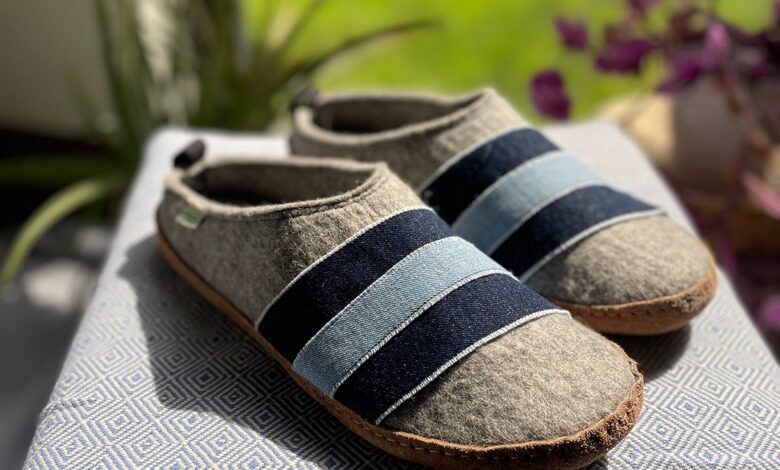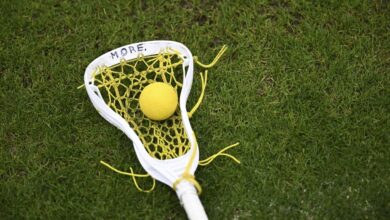What’s Old Is Shoe Again

Kyrgies, the Richmond-based house shoe brand, is trying its hand at alchemy. They’re not quite turning base metals into gold, but their new capsule collection celebrating Earth Month aims to recycle scrap products into a slipper that’s greater than the sum of its parts.
Thanks to a collaborative project with Drexel University and Fabscrap, a nonprofit organization that works to recycle and reuse fabric waste, they’re transforming textile trash into cozy, durable slippers.
According to Earth.Org, 2.6 million tons of returned clothes ended up in landfills in 2020 in the U.S. alone, and 92 million tons of textile waste are produced globally every year. It’s an issue Kyrgies co-founder and President Barclay Saul knows all too well. When a customer returns a pair of Kyrgies that, for whatever reason, can’t be resold, it goes into the recycle pile, or what Saul calls the “figure-out-what-to-do-with pile.”
In August 2023, Saul first started exploring the idea of circular design for Kyrgies, a model that involves creating, repairing and upcycling products to generate zero waste. Saul was on the hunt for partners who could help Kyrgies achieve the concept with big appeal for the sustainability-focused brand, and he landed on Fabscrap, which in turn pointed him toward Drexel University.
The team helped form an independent study course, where Drexel students were tasked with designing a model to upcycle Kyrgies using deadstock (unused and/or from a previous season) materials and trim from Fabscrap. The winning design came from Martin Queenan, whose striped design was put into production for a capsule collection that debuted on Kyrgies’ website in April, in honor of Earth Month. The slides feature Kyrgies’ signature felted wool with a denim accent on the upper portion of the foot.
“Martin’s design was just so obviously the one because it also repurposes denim, which is completely plentiful, horrible for the planet and there’s a never-ending supply,” Saul says. “He seemed like he was the one who really understood the assignment.”
Though founded and based in the Richmond area, Kyrgies are produced in Kyrgyzstan, where the company’s sustainability efforts extend to their workers. The brand works with Tumar, a woman-owned felting collective that predominantly employs women and ensures a living wage, to manufacture the majority of their products. The workers practice the traditional technique of felting, an art form in Central Asian communities for centuries, in producing the brand’s slippers, which are then shipped to Kyrgies’ Chesterfield facility.
Now, when slippers end up in the recycle pile, they have a chance at a second life, Saul explains. “We send them to an atelier in New York City called LW Pearl, run by a woman named Laura Weber. Laura and her team attach a denim stripe across the upper, which is the style that Martin came up with out of these piles and piles of recycled denim that Fabscrap supplies them,” he says. “It’s basically a new design on the old shoe.”
The result is a collection featuring two styles of durable slides with reinforced soles for indoor and outdoor use, released in early April in multiple colors and sizes. The stages of this production cycle, and the partnerships they involve, are taking Kyrgies a step closer to the circular design Saul has envisioned.




